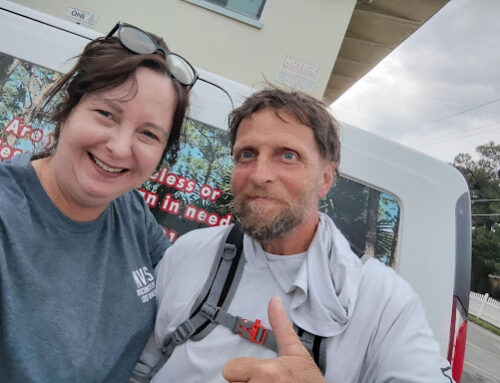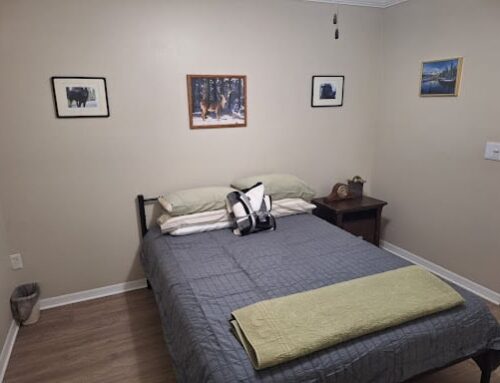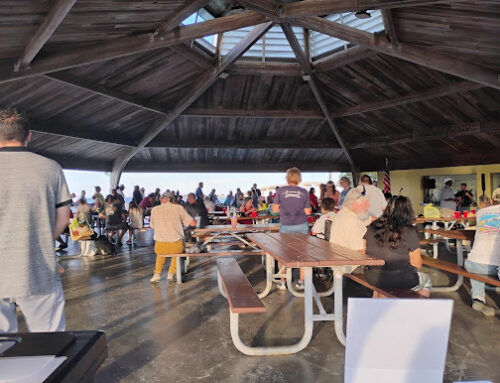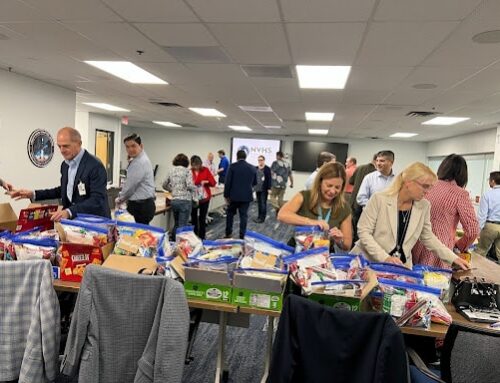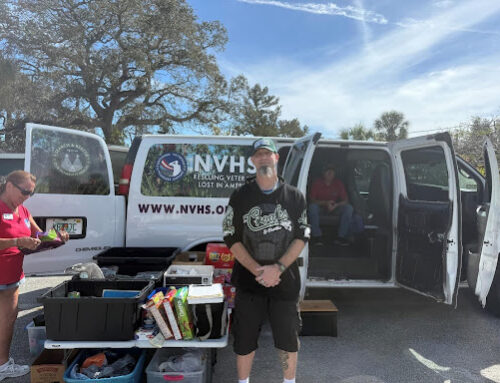Building Strong Support Networks for Veterans’ Families
Veterans and their families often face unique challenges after military service. Understanding these challenges and the importance of strong support networks is vital for their well-being and reintegration into civilian life. This article explores the struggles of veterans’ families, the necessity of support services for veteran families, and ways to build effective support networks.
Challenges Faced by Veterans’ Families
Veterans’ families face a multifaceted set of challenges that can impact nearly every aspect of their lives. These difficulties not only strain individual family members but can also affect the overall family dynamics and their integration into civilian life. Here’s a more detailed look at the specific challenges they face:
- Emotional and Psychological Challenges: Many veterans experience mental health issues such as post-traumatic stress disorder (PTSD), anxiety, and depression, which often stem from experiences during their service. These conditions can lead to increased irritability, difficulty in making decisions, and emotional withdrawal, affecting relationships with spouses and children. Additionally, the family members of veterans might also develop secondary stress disorders, experiencing symptoms similar to those of the veteran, a phenomenon known as “secondary traumatization.” Counseling and therapy for the entire family can be crucial in addressing these pervasive emotional challenges.
- Physical Disabilities: Injuries from service — ranging from lost limbs to chronic pain and more — can necessitate comprehensive changes to daily routines and living environments. The family may need to move to a more accessible home, modify existing spaces, or purchase specialized equipment. Moreover, the care responsibilities often fall on family members, adding physical and emotional strains as they adjust roles and responsibilities to accommodate the veteran’s needs.
- Economic Hardship: The transition from military to civilian life can often lead to economic instability. Veterans may find it challenging to find employment that matches their skills and experience, leading to jobs that may not utilize their capabilities fully or compensate them comparably to military pay. This economic uncertainty can strain family finances, complicate budgeting, and limit access to essential services. The lack of stable income can exacerbate stress within the family, leading to increased anxiety about future prospects.
- Social Isolation: Frequent relocations and the unique nature of military life can isolate veterans and their families from traditional social support networks. After leaving service, this sense of community often diminishes further, as families find themselves needing to reintegrate into civilian communities where their experiences and sacrifices might not be fully understood or appreciated. This isolation can be particularly challenging for spouses who have also moved away from their support systems. Building new relationships can be daunting, and the feeling of disconnectedness can lead to loneliness and detachment.
- Educational and Childcare Challenges: Veterans’ children may face educational disruptions due to frequent moves during service, which can affect their academic performance and social integration. Additionally, the emotional and psychological stresses within the home can impact children’s behavior and mental health. Access to consistent and supportive educational environments and childcare can be a significant concern for veteran families adjusting to a new civilian life.
- Navigational Challenges With Veteran Benefits: Understanding and accessing the benefits available to veterans and their families can also be a daunting task. The complexity of systems and the bureaucracy involved can act as barriers to receiving assistance, whether for health care, education, or disability benefits. Delays in processing claims or lack of knowledge about available resources can leave families without needed support during critical times.
Each of these areas presents significant challenges for the families of veterans, requiring a multifaceted approach to support and resources. Addressing these issues effectively calls for comprehensive support services for veteran families, including accessible mental health services, physical rehabilitation programs, economic support, and community-building initiatives that can ease the transition and foster long-term well-being.
Why Building a Support Network Is Crucial
A strong support network is crucial for veterans’ families to navigate these challenges successfully. It provides emotional solace, practical assistance, and valuable information that can ease the transition and promote mental health and stability. For example, support for family members of veterans can include counseling, which helps families cope with emotional difficulties stemming from military service adjustments.
Ways to Build Support Networks for Veterans’ Families
Building a strong support network is crucial for the well-being of veterans’ families as they navigate the complexities of post-military life. Here are detailed ways and examples of how veterans’ families can develop and strengthen these networks:
- Veterans Affairs (VA) Services: The VA provides a broad range of services tailored specifically for veterans and their families, which go beyond healthcare and mental health services to include financial aid, education, and housing assistance. Programs such as the VA’s Caregiver Support Program offer training, educational resources, and even financial support to those caring for disabled veterans. Additionally, the VA’s mental health services include specialized PTSD support and family counseling, which can address the unique challenges faced by veterans’ families. Exploring VA mobile apps and online portals can also enhance access to these services, allowing families to manage their health care and benefits more effectively.
- Community Veteran Organizations: Organizations such as the American Legion, Veterans of Foreign Wars (VFW), and Disabled American Veterans (DAV) provide critical support mechanisms. They not only offer a sense of community and mutual support but also advocate for veterans’ rights and provide significant resources such as legal advice, help with VA claims, and scholarships for members’ children. These groups also organize social events and community service projects that can help families feel connected to a larger purpose.
- Online Support Groups: Digital platforms like Facebook groups, forums like Together We Served, or apps like PTSD Coach provide spaces where veterans’ families can connect with others worldwide. These platforms allow families to share their experiences and resources in a real-time, accessible format, helping them to feel less isolated and more supported. Online support groups can also be specific to certain needs, such as groups for families of veterans dealing with specific injuries or mental health issues.
- Local Community Resources: Engagement with local community resources can significantly enhance the social integration of veterans’ families. Churches, synagogues, mosques, and other religious institutions often have support groups and family activities that can provide both spiritual support and community connections. Local schools and community centers often offer programs and services designed for children’s education and recreational activities, which can help veterans’ children integrate and succeed in new environments.
- Professional Counseling: Professional therapists or counselors who specialize in military and veteran issues can offer individualized support to address complex personal and familial challenges. These professionals are often trained in military culture and the specific psychological impacts of military service, making them well-equipped to assist with the transition to civilian life. Family therapy can be particularly beneficial in helping all members understand and support each other through the changes.
- Educational Workshops and Seminars: Local community colleges, universities, and even online platforms offer workshops and seminars that can be incredibly beneficial for veterans transitioning to civilian careers. Topics might include resume writing, interview skills, networking, and leveraging military skills in the civilian job market. Additionally, financial management workshops can help families adjust to new budgetary realities post-service.
- Engaging With Local Politicians and Veterans Affairs Offices: Active engagement with local politicians or attending town hall meetings can also be a way for veterans’ families to build a support network that influences local policies and services. Being involved in advocacy and policy-making can empower families and ensure that the needs of veterans are met in community planning and services.
By utilizing these diversified approaches, veterans’ families can build a comprehensive support network that not only helps them navigate the immediate challenges of post-military life but also fosters long-term well-being and community integration. These networks are crucial in ensuring that the sacrifices made by veterans are honored with robust, effective support systems.
Building a strong support network is not just beneficial but essential for the well-being of veterans’ families. It provides a foundation of stability and assistance crucial for overcoming the challenges of transitioning from military to civilian life, ensuring that the sacrifices made by veterans are honored with robust support that acknowledges and addresses the unique challenges they and their families face.
National Veterans Homeless Support seeks to eliminate homelessness among veterans in Central Florida and nationwide. NVHS takes a proactive, intervention-based approach to homelessness by meeting homeless veterans where they are and helping them from there. Through programs such as Search and Rescue Outreach, NVHS helps homeless veterans get the supplies they need to survive, connects them with support and resources, and helps them transition off the streets and into temporary or permanent housing. Some of our programs also include art therapy to help veterans heal. If you’re able, consider supporting our mission by donating or signing on as a volunteer.

